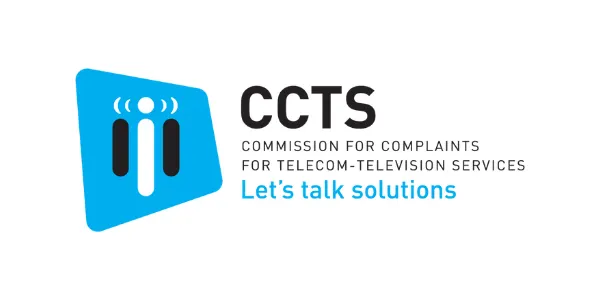
On the phone, the agent for the cellphone provider promised me a discount. Is that binding on the provider?
Getting a cellphone can be complicated. Smartphone or something more basic? Two-year contract or pay-as-you-go? Individual or shared plan? With so many options and new words to learn, it can be hard to navigate. Here, we guide you through how to negotiate your cellphone contract with a service provider — the company that provides the voice, text, and data service for your phone.
What you should know
Cellphone service providers and their salespeople must give clear and accurate information. Under the Wireless Code, Canada’s main set of rules for cellphone providers, any salesperson must communicate with you clearly and in plain language. They must describe products and services accurately. This applies whether they’re dealing with you on the phone, online, or in the store.
“Over the phone, my cellphone provider offered $10 off the plan I was considering. I said yes. But when I got my next bill, it didn’t show the $10 discount. When I called, they said they had no record of the offer. I complained. The complaints agency tracked down a recording of the phone call, which revealed the agent did in fact make the offer to me. The provider ended up giving me the promised discount.”
– Heather, Victoria, BC

A common problem when negotiating with a cellphone provider is having a salesperson offer a discount or promotion, and later finding out the contract doesn’t reflect the offer. Providers aren’t required to offer discounts or promotions. But they are required to honour commitments their employees make to customers.
Under BC law, a cellphone provider can’t use unfair practices to convince you to buy a phone or phone plan. These include making misleading statements, either verbally or in writing. For example, a provider’s ad or salesperson can’t tell you their network is the “fastest” or “most reliable” unless they have solid research to back that up.
Under a related law, a provider can’t do something unconscionable, such as put undue pressure on you to buy or commit. For example, a salesperson can’t tell you that you have to sign a contract immediately to get a “special price” they’re offering.
If the salesperson does something unconscionable, any contract you sign becomes invalid.
A cellphone contract is the official record of your agreement with a phone service provider. It says what you and the provider agree to do and not do.
Be aware you don’t have to actually sign a piece of paper to have a contract. You can agree to a contract with the cellphone provider by:
clicking a link that says you agree to the terms and conditions
saying over the phone that you agree to the terms and conditions
Tips for the negotiation
Before you start negotiating, you want to have a good understanding of your rights. For example, the provider must give you a copy of the cellphone contract, which must include certain information and be clear and easy to understand. And you can cancel — for any reason — within 15 days. Here, we unpack these and other key cellphone contract rights.
Make a list of the features that are most important to you, and craft questions to ask of the phone provider. For example:
For the included services, what’s the actual amount I have to pay each month?
How many texts, local calling minutes, and GBs (gigabytes) of data are included?
If I exceed my limits, particularly for data, what extra charges apply?
Is there good coverage where I live, work and travel?
Can I switch to a higher or lower plan, without penalty? Can I upgrade my phone?
Exactly how much will I have to pay to cancel the contract?
Be clear on whether a plan is truly “unlimited”
If you’re considering an “unlimited” plan, ask if there any limits spelled out anywhere. For example, some providers have a “fair use policy.” That means that beyond a certain threshold of data use each month, connection speed slows and additional charges may appear.
When you buy a new phone, the salesperson may suggest you buy an extended warranty. For an added charge the provider will fix or replace the phone if it breaks within the coverage period.
But be aware that an extended warranty may not give you any more rights than you have already through what’s called the legal warranty. Under BC law, certain conditions are implied into every sales contract, whether or not the seller mentions them: what you buy must be of a merchantable quality and reasonably durable.
If you're thinking about an extended warranty, ask questions about its terms. For example:
How long is the extended warranty good for?
What’s covered — is it parts and service, or just parts?
If I’m to blame for damage — say I drop the phone — am I still covered?
Where do I have to take the phone for repairs?
This is really important. Make notes of your conversations with the cellphone service provider. If they offer you a discount over the phone, make a note about it: what they said, who you spoke with, the date. Even better, try to record your conversation (letting the agent know you plan to do so).
In fact, if you can interact with the service provider using electronic communications (such as email or web chat), do so. That way you’ll have a full record of the communication.
Reading a long contract isn’t anyone’s idea of fun. But take a few minutes to do so. It can save you a lot of grief down the road. Confirm whether the contract includes the key terms you agreed to, and reflects any discounts or promotions you were promised. Make sure you fully understand any limits on any promotions offered. For example, sometimes a provider will offer a discount for a certain number of months (rather than the full term of the contract).
After signing the contract, you have a 15-day trial period to decide whether it’s what you want. (The trial period is 30 days for people with disabilities.) During this period, you’re legally entitled to cancel the contract — for any reason — at no charge. Be sure not to use more than the trial period usage limits. And keep the original packaging :)
Common questions
A person of any age can enter into a contract in BC. But if the customer is under age 19 (and is therefore considered a minor), special rules apply.
A contract can’t be enforced against a minor. (There are some exceptions, such as if the contract provides the minor with the “necessaries” of life — services that are vital to health or welfare.)
On the other hand, a minor can enforce a contract against an adult party to the contract.
The result is that if a business enters into a contract with someone under age 19, the minor generally isn't responsible for keeping up their end of the bargain. But if the minor wants to enforce the contract, they can.
So if your son wants to keep the cellphone and make the payments under the contract, he can.
On the other hand, if he wants out of the contract, he can cancel. Make sure he returns the cellphone to the store. Also, be sure he sends a letter to the cellphone provider telling them he’s cancelling and confirming that the account will be closed. Keep a copy for your files.
When you’ve finished with an old cellphone or battery, don’t throw either of them out. Your community may have a recycling program to dispose of electronic waste in a sustainable way. Check with your municipality.
Be sure to remove all of your personal information from the phone before recycling it.
Who can help

Commission for Complaints for Telecom-television Services
CCTS deals with cellphone, TV and internet service complaints.

Competition Bureau
Deals with complaints about false or misleading advertising.
